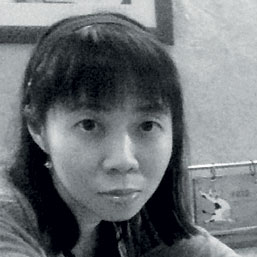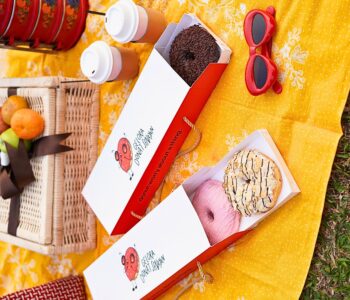Fresh from the runway of the latest Men’s Fashion Week at Plaza Indonesia comes a cultural phenomenon that blends Indonesian high art with Japanese street style fashion. Meet Ikemen from Parang Kencana.
From the streets of Tokyo to the streets of Jakarta, cropped trousers otherwise known as culottes are making their way to modern men’s closets—along with military jackets, baggy pants and layered sweats.
But in the hands of the designers at the high-end batik fashion house Parang Kencana, the trendy looks of Japanese millennials have turned somehow Indonesian, thanks to the use of traditional batik patterns and fabrics.
On the runway of Men’s Fashion Week at Plaza Indonesia last month, models flashing kimono-cut jackets, wide-legged culottes and statement shirts showcased the brand’s latest men’s collection, aptly entitled Ikemen, in reference to the Japanese term for good-looking men.
Not only is Ikemen street-friendly, the collection—priced from IDR 1,200,000 to IDR 11,850,000—also promises men ways to look instantly more fashionable. Pair the Ikemen kimono jacket with plain T-shirt and jeans or, alternatively, combine the batik culottes with a T-shirt or shirt. It’s time to be ahead of the curve, suggests Nico Prabowo, Sales and Marketing Manager of Parang Kencana.
The brand was conceived in 1992 by Mariana Sutandi, with a mission to introduce batik to the world. The word parang refers to an ancient batik pattern that depicts a dagger while kencana is an old Javanese word that means gold. As the business grew and evolved, it began seeking innovative ways to undo the myth that batik is reserved for the mature and serious crowd. Rather, it should also appeal to the younger crowd.
In keeping with their commitment to the art of batik, the designers at Parang Kencana have kept their word to only use high quality fabrics and patterns. Staying away from machine-made printed batik textiles, they have consistently opted for the more exclusive batik cap (hand-blocked using a copper stamp) and batik tulis (hand-drawn using canting, a copper vessel with a spouted nib). The process entails long hours of manually waxing, dying and drying the fabrics – one colour at a time, as many colours at it takes to create a pattern.
The brand also prides itself on being the first batik producer to create unique colour gradations, which has since been its signature..
With prices that range from IDR 800,000 to IDR 3,100,000 for batik cotton shirts and from IDR 3,100,000 to IDR 17,000,000 for batik silk shirts, customers are guaranteed satisfaction and exclusivity.
“Every design of our batik cap textile is produced in limited quantity. One particular design will only be used on 20 pieces of silk shirts and 30 pieces of cotton shirts. As for our batik tulis, each design is exclusively hand-drawn to produce one single shirt. Thus, say, if you’re interested in one of our shirts but can’t find your size, we’ll have to resort to alteration,” says Prabowo.
Alteration aside, the brand also offers bespoke tailoring services using fabrics available at its stores. With an all-around determination to please, one can expect excellent standards of service at Parang Kencana. Whatever the look—classic, contemporary or the more quirky ones—rest assured, you’re in for a treat.
Parang Kencana stores:
Jakarta: Gallery Parang Kencana: Kemang Raya # 81 A (T: +62-21 7179 2650), Plaza Senayan (Ground Floor), Pacific Place Mall (2nd floor), Plaza Indonesia (3rd floor), Grand Indonesia (West Mall, Level UG), Mall Kelapa Gading 5 (1st floor/The Catwalk), Lippo Mall Puri (Ground Floor), Soekarno-Hatta International Airport Terminal 1 C and Terminal 2 D
Surabaya: JW Marriott Hotel and Grand City Mall (1st floor)
Bali: Mall Bali Galeria (Ground Floor)
Parang Kencana’s goods are also available at major department stores in Jakarta: Alun-Alun (Grand Indonesia and Central Park), Metro (Pacific Place, Plaza Senayan, Pondok Indah Mall 1), Pasaraya Grande, Sarinah Thamrin, SOGO (Plaza Senayan, Emporium, Pondok Indah Mall 2) and Central (Grand Indonesia).








